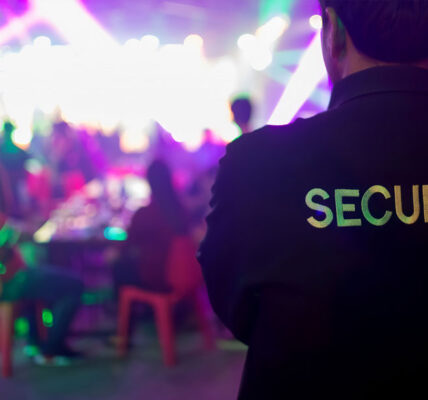In modern society, security guards play a crucial role in crime prevention across various settings, including commercial properties, residential areas, and public spaces. Their presence not only deters criminal activities but also provides reassurance to individuals and businesses. This essay explores the multifaceted role of security services in crime prevention, emphasizing their importance in safeguarding communities and promoting public safety.
The Deterrent Effect of Security Guards:
One of the primary functions of security guards is to serve as a visible deterrent to potential criminals. The presence of a uniformed security guard often dissuades individuals from engaging in illegal activities, such as theft, vandalism, or trespassing. Studies have shown that the likelihood of crime decreases significantly in locations where security Services are present, as perpetrators perceive a higher risk of detection and apprehension.
Moreover, security guards act as a proactive force against criminal elements by conducting regular patrols, monitoring surveillance cameras, and maintaining a vigilant presence. Their watchful eyes and quick response to suspicious behavior serve as a barrier to unlawful acts, creating a safer environment for residents, employees, and visitors alike.
Collaboration with Law Enforcement:
Security guards often collaborate closely with local law enforcement agencies to enhance crime prevention efforts. They serve as the eyes and ears of the community, reporting incidents, gathering evidence, and assisting authorities in investigations. By establishing effective communication channels with police departments and emergency responders, security guards services facilitate rapid responses to emergencies and criminal activities.
Furthermore, security services contribute valuable insights and intelligence to law enforcement agencies, helping identify crime patterns, hotspots, and emerging threats. This partnership between private security and public law enforcement agencies fosters a synergistic approach to crime prevention, maximizing resources and capabilities to combat criminal behavior effectively. This sense of collective responsibility strengthens the social fabric of communities and reinforces the effectiveness of crime prevention strategies.
Community Engagement and Outreach:
Beyond their traditional roles as protectors of property and assets, security services often engage in community outreach initiatives to promote crime prevention awareness and foster positive relationships with residents and stakeholders. Through educational programs, neighborhood watch meetings, and safety seminars, security guards empower communities to take an active role in safeguarding their surroundings.
By building trust and rapport with local residents, security services gain valuable cooperation and support in their crime prevention efforts. Residents are more likely to report suspicious activities, adhere to security protocols, and participate in collaborative initiatives aimed at enhancing public safety. This sense of collective responsibility strengthens the social fabric of communities and reinforces the effectiveness of crime prevention strategies.
Response to Emergencies and Crisis Situations:
In addition to their preventive measures, security guards are trained to respond swiftly and effectively to emergencies and crises. Whether it’s a medical emergency, a fire outbreak, or an act of violence, security guards are often the first responders on the scene, providing critical assistance and maintaining order until further help arrives.
Their training in emergency response protocols, first aid, and crisis management equips security guards with the skills and readiness to handle diverse scenarios with professionalism and composure. By acting as a stabilizing force during chaotic situations, security services mitigate potential harm, minimize property damage, and ensure the safety of individuals within their jurisdiction.
Conclusion:
In conclusion, security guards play a pivotal role in crime prevention by serving as visible deterrents, collaborating with law enforcement, engaging with communities, and responding to emergencies. Their presence not only protects property and assets but also promotes a sense of security and well-being among residents, employees, and visitors. As guardians of safety, security services contribute significantly to the fabric of society, enhancing public safety and fostering resilient communities in an ever-changing world.





